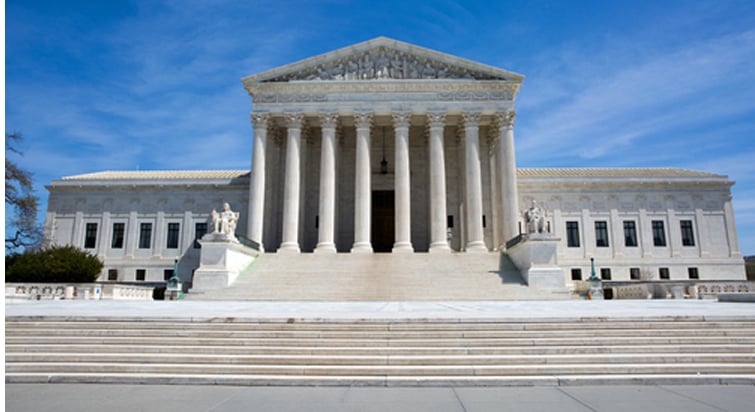Accused man has the right to insist his lawyer refrain from conceding guilt, Supreme Court rules

Shutterstock.com.
The U.S. Supreme Court ruled on Monday that a man accused of murder has the right to insist his lawyer refrain from conceding his guilt at trial.
The court ruled that the Sixth Amendment gave the defendant, Robert Leroy McCoy, the right to make that determination.
Justice Ruth Bader Ginsburg wrote the majority opinion. Justice Samuel A. Alito Jr. dissented, joined by Justices Clarence Thomas and Neil M. Gorsuch.
“We hold that a defendant has the right to insist that counsel refrain from admitting guilt, even when counsel’s experienced-based view is that confessing guilt offers the defendant the best chance to avoid the death penalty,” Ginsburg wrote.
“Guaranteeing a defendant the right ‘to have the assistance of counsel for his defense,’ the Sixth Amendment so demands. With individual liberty—and, in capital cases, life—at stake, it is the defendant’s prerogative, not counsel’s, to decide on the objective of his defense: to admit guilt in the hope of gaining mercy at the sentencing stage, or to maintain his innocence, leaving it to the state to prove his guilt beyond a reasonable doubt.”
McCoy was sentenced to death in January 2012 for the May 2008 murders of the son, mother and stepfather of his estranged wife. McCoy’s parents hired Larry English to represent McCoy, paying him $5,000 borrowed against their car title.
McCoy refused his lawyer’s suggestion to accept a plea deal, and objected when English informed him that he planned to concede guilt. The lawyer maintained the concession was necessary because he had an ethical duty to save McCoy’s life.
English had argued that McCoy was guilty, but he was suffering from serious emotional issues that interfered with his ability to make rational decisions.
McCoy testified that a drug trafficking ring headed by law enforcement was responsible for the murders and had framed him.
Ginsburg ackowledged that English was in a difficult position due to “an unruly client” and a strong government case. He reasonably thought the objective of his representation should be to avoid the death penalty. But once McCoy insisted he didn’t kill anyone and objected to English’s plans, “a concession of guilt should have been off the table,” Ginsburg said.
A client may want to avoid “the opprobrium that comes with admitting he killed family members,” Ginsburg said. Or a client “may hold life in prison not worth living and prefer to risk death for any hope, however small, of exoneration.” That choice must be respected, she said.
In his dissent, Alito argued that, rather than admitting his client was guilty, English admitted just one element of the offense—that his client had killed the victims. English still maintained his client didn’t commit murder because he lacked the intent required for the offense.
“So the court’s newly discovered fundamental right simply does not apply to the real facts of this case,” Alito said.
The case is McCoy v. Louisiana.
Related article:
ABAJournal.com: “Sixth Amendment bars lawyer from overriding client’s decision to contest guilt, ABA brief says”



